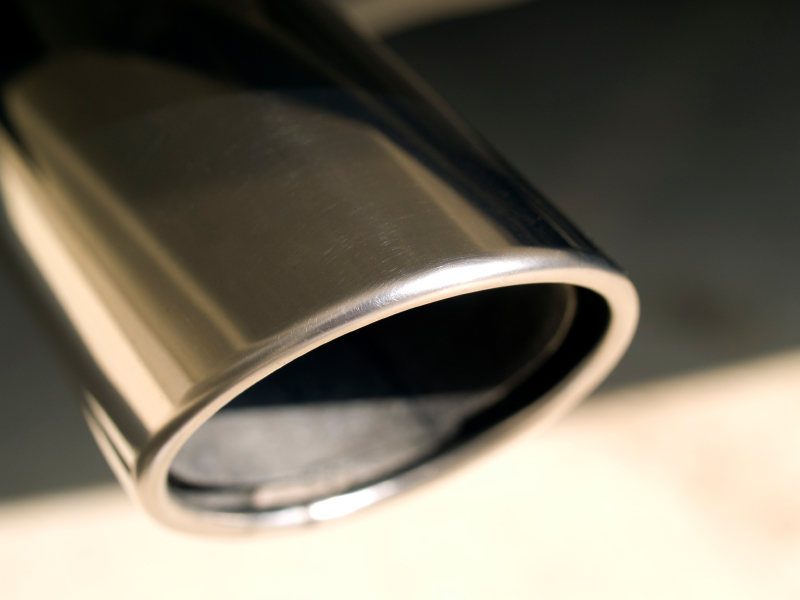Last November, the Environmental Protection Agency said it would rescind a rule that banned companies from fitting outdated, older, and dirtier diesel engines into brand-new "glider" chassis-cab trucks.
Among the many regulations to limit emissions and other forms of pollution that EPA administrator Scott Pruitt has axed, this one was particularly obscure.
As is required by its mandate, the agency's rationale for eliminating the rule was based on science.
DON'T MISS: EPA to axe rule banning older, dirtier diesel engines in new trucks: report (Oct 2017)
Or at least what it called "science" at the time.
Last Monday, the president of Tennessee Technological University, a state university branch in Cookeville, wrote to Pruitt to inform him that the university was investigating a study cited by the EPA in its decision to eliminate the glider rule.
The study had concluded that emissions from glider trucks were no worse than those from brand-new trucks equipped with expensive and complex urea-injection aftertreatment systems to reduce the nitrogen-oxide emissions from their modern diesel engines.
![EPA administrator Scott Pruitt [photo from 2014] EPA administrator Scott Pruitt [photo from 2014]](https://images.hgmsites.net/lrg/oklahoma-attorney-general-scott-pruitt-2014_100584650_l.jpg)
EPA administrator Scott Pruitt [photo from 2014]
Under the Obama administration, the EPA had calculated that gliders using older, dirtier engines produced emissions 20 to 40 times higher than do the latest diesel engines today, including higher levels of both soot and smog-forming nitrogen oxide.
The study cited in the EPA decision was paid for by Fitzgerald Glider Kits, the country's single largest maker of glider trucks, located just 50 miles from the university in Byrdstown, Tennessee.
Not only did Fitzgerald pay the costs of conducting the study, according to a lengthy report in The New York Times last Wednesday, it offered to build the university a new research center on land owned by the company.
CHECK OUT: CAFE proposal coming March 30: automakers hope national rules survive
University president Philip Oldham's letter to Pruitt noted that “experts within the university have questioned the methodology and accuracy” of the study.
The interim dean of the university's college of engineering called its conclusion "far-fetched" and "scientifically implausible" in an earlier written to faculty leaders about the study:
No qualified, credentialed engineering faculty member (1) oversaw the testing, (2) verified the data or calculations of the graduate student, (3) wrote or reviewed the final report submitted to Fitzgerald, or (4) wrote or reviewed the letter submitted to Diane Black with the far-fetched, scientifically implausible claim, that remanufactured truck engines met or exceeded the performance of modern, pollution-controlled engines with regards to emissions.

Chrome exhaust pipe
It's worth noting that virtually every major manufacturer of new trucks weighed in on the side of keeping the glider rule in place.
Their reasoning was that glider makers would gain an unfair advantage in the market if they did not have to incur the cost of providing the emission controls that are required of new truck makers.
Last May, agency administrator Pruitt met with executives from Fitzgerald. Representative Diane Black [R-TN] also urged the agency and Pruitt to rescind the regulation.
Separately, Black appears to have accepted a total of $225,000 in campaign contributions from Fitzgerald corporate entities, employees, and their family members, which may violate campaign-finance laws.
READ THIS: California, allies ready for emission-law war with Trump EPA, CARB head says
Last Wednesday, the EPA told the Times in a written statement that Pruitt had eliminated the rule not based on the study but because it had decided it did not have the legal authority to regulate the engines fitted to glider trucks.
The agency "only noted the existence" of the study, it said, and did not rely "or even quote directly" from it.
To date, Pruitt has met with dozens of executives and representatives of companies regulated by his agency, but not with any representatives of any environmental groups.
The agency has said it will not release names of the people and groups Pruitt meets with, saying his schedule does not have to be provided.













